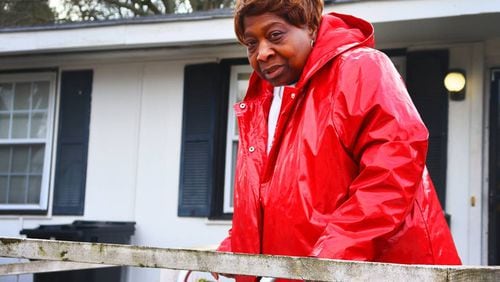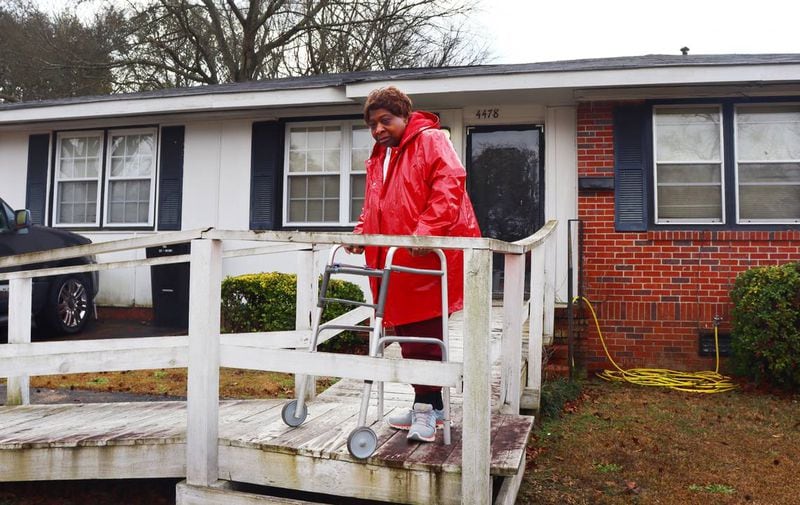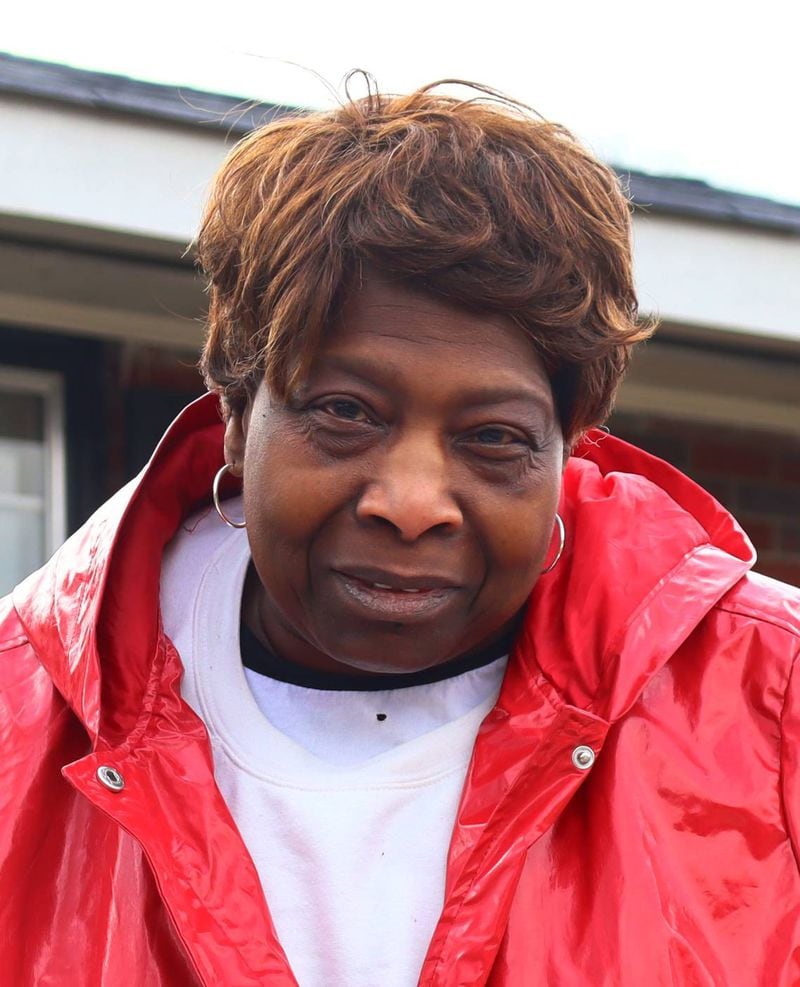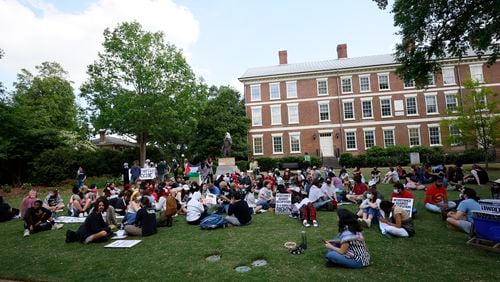This story was originally published by the Ledger-Enquirer.
As the bitter cold wind whipped through Southwest Georgia this week, Vivian Nelson stayed warm thanks to a new central heat system. And, it was free; fully funded by the Georgia Weatherization Assistance Program.
The program is specifically designed to help low-income people make their homes more efficient and more comfortable by sealing air gaps, adding insulation, or in some cases, replacing broken systems.
“The program is designed to keep utility costs down while keeping in mind the health and safety of the home,” Jay Stewart, Weather Energy Auditor for the state agency Community Action for Improvement, Inc. (CAFI) said. “I’ve seen reductions in electric bills cut in half.”
Tuesday night and into Wednesday morning Columbus was under a wind advisory with chills that made it feel in the single-digits. The temperature dipped to 17 degrees. The record low was nine degrees in 1977.
Stewart said about 50-60% of the clients end up getting new heating and cooling systems.
To qualify for the free service, the household needs to be below 200% of the gross poverty index. Stewart said he hasn’t received what the guidelines are for 2024 as far as income, but in 2023 it was $29,160 per year of gross income per person.
For a family of four with two working parents each earning under $30,000, the max income would be right around $60,000, Steward said, and they would qualify.
Nelson’s 36-year-old heating and air conditioning system broke in December 2022. Nelson was planning on applying for a loan to buy a new HVAC system until she heard about this government program from a friend.
“My friend has a cousin in South Carolina who said the government did this type of work for her,” Nelson said. “Maybe they have one in Georgia,” she thought, “Sure enough, they did.”
Credit: Kala Hunter
Credit: Kala Hunter
Nelson is legally blind, widowed, and has difficulty getting around with her rheumatoid arthritis. A friend helped her fill out the application. As a 70-year-old disabled person, she was prioritized. However, she still was part of a queue and waited more than a year.
“They call us and we’ll send an application,” Stewart said. “As soon as the info is put in, we mail out an approval or denial letter within a few weeks. The computer generates a priority number, we have no control.”
CAFI averages about four to six homes in the six counties it serves per month. Stewart is the only auditor though. Between 2010 and 2021, Georgia weatherized an average of 467 homes per year with formula funds, according to the DOE’s website.
Nelson moved in with her daughter temporarily while she waited for her turn to receive an audit and then construction. She lived in her daughter’s house for respite during the summer heat and these last few weeks of bitter cold.
The construction crew came by on January 8th, according to Nelson. They installed the new heater, a new hood over her stove. She moved back into her house shortly after.
“I have it set to 70 degrees and haven’t turned it off,” Nelson said with a smile. “I’m so thankful. I’m so thankful the government had that program. God is good.”
Weatherization federal funding
On Tuesday, the construction team paused the final weatherization item: blowing insulation in her attic. They will come back on Thursday after the winter storm - for their safety.
Stewart has been at CAFI for 19 years. He’s witnessed a lot of changes in the program. The program itself has been around since 1979 and CAFI is one of 14 state agencies that manage clients in certain counties.
The program got a huge pay bump in 2022 from the Bi-Partisan Infrastructure Law (BPL).
“The BPL is quite an eye-opener,” Stewart said.
The funding traditionally comes from the Department of Health and Human Services and The Department of Energy. Right now the state is diving up $4.3 million from the DOE and $7.4 million. from the HHS. A whopping $84 million from the BPI was added to the equation.
“Of that 84 million, CAFI will get $4.7 million through 2026,” Georgia Environmental Finance Authority (GIFA) spokesperson said. “GIFA draws down the funds then distributes them to community action networks to implement the weatherization assistance program.”
The winter storm and climate change
The freezing weather Columbus (and much of the U.S.) is experiencing comes on the heels of the warmest December in U.S. history.
Scientists are still trying to understand whether polar vortexes can be attributed to climate change.
“It’s an active area of research for the destabilization of the polar vortex as the arctic warms up,” Bob Henson, meteorologist and journalist with Yale Program on Climate Change Communications said. “The theory that we’ve heard for the last decade is that the temperature contrast weakens between the poles and the tropics, making the polar vortex behave more weirdly. But, it’s still a concept.”
The polar vortex has controversy and is still up for debate. However, Henson suggests that winter weather can happen in a “warming world.”
It’s also an El Nino year, which brings cooler, cloudier, and wetter averages across the U.S. Henson said this weather is a mix of normal weather variation and El Nino.
“This feels more dramatic because it’s been so off the charts, but this isn’t necessarily a standout event,” he said.
More data and time will help scientists understand whether these events are connected to climate change.
Credit: Kala Hunter
Credit: Kala Hunter
Nelson said patience has been a huge lesson for her. She felt especially connected to this quote from the bible. Ephesians 3:20 “He is able to do exceeding abundantly above all that we can ask or think.”
Find your Weatherization Agency here.
Credit: Ledger-Enquirer
Credit: Ledger-Enquirer
MEET OUR PARTNER
Today’s story comes from our partner, the Ledger-Enquirer in Columbus. The Ledger-Enquirer provides daily coverage of community news, events, and sports in Columbus and the Chattahoochee Valley at ledger-enquirer.com.
If you have any feedback or questions about our partnerships, you can contact Senior Manager of Partnerships Nicole Williams via email at nicole.williams@ajc.com.










